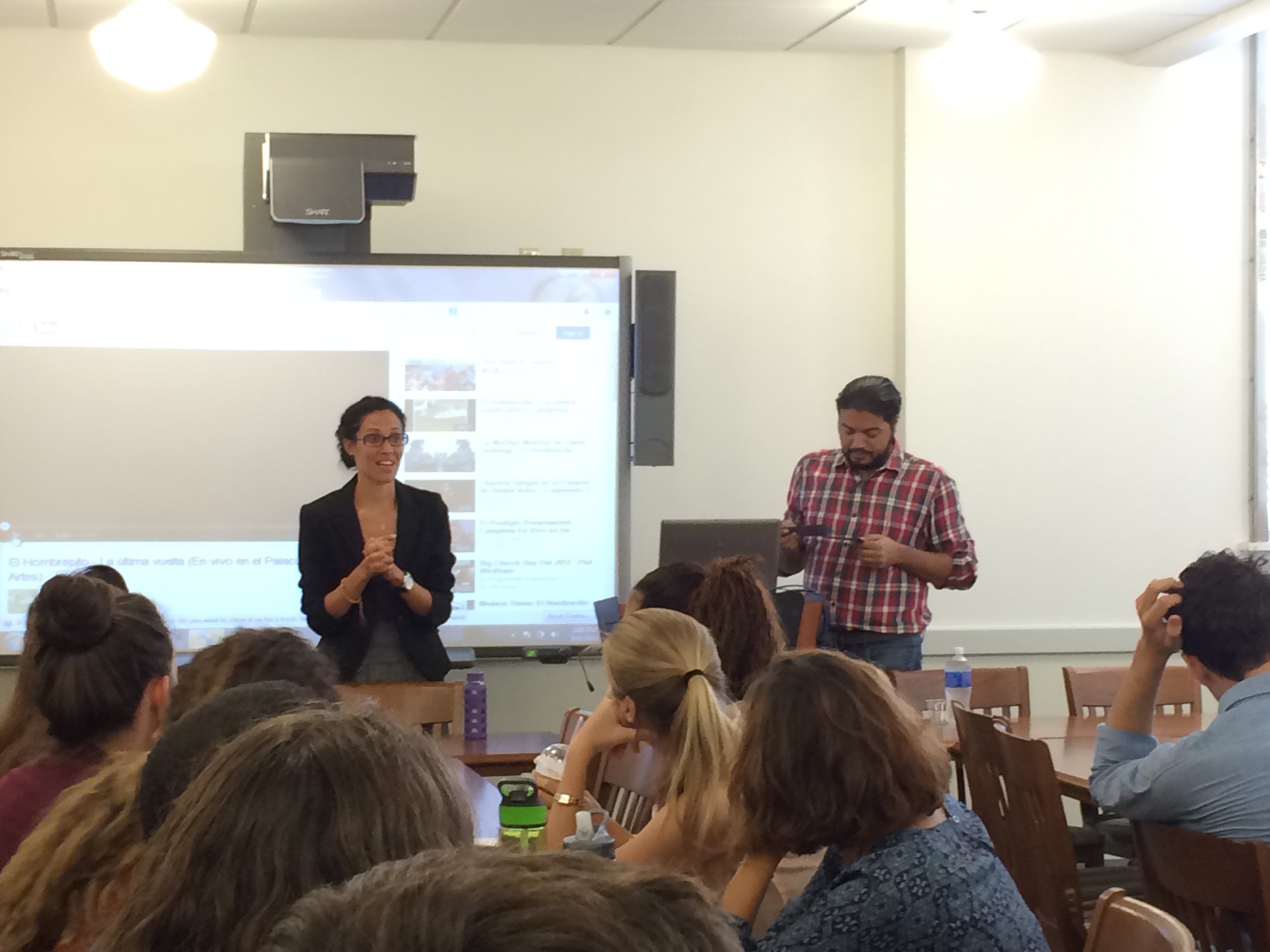Renowned Dominican poet discusses literary world in present-day Latin America
 Renowned Dominican poet Frank Báez was warmly welcomed on Monday, Sept. 8 by SUNY New Paltz students and faculty when he visited to give a lecture titled, “Writing in Latin America and the Caribbean.”
Renowned Dominican poet Frank Báez was warmly welcomed on Monday, Sept. 8 by SUNY New Paltz students and faculty when he visited to give a lecture titled, “Writing in Latin America and the Caribbean.”
Sponsored by the College of Liberal Arts & Sciences, the Department of Languages, Literatures and Cultures, and the Latin American and Caribbean Studies Program, approximately 50 students and 10 faculty members attended the lecture at which Báez spoke about the literary world in present-day Latin America, more specifically the Dominican Republic.
“I’m really excited we could bring an author who is important in the Dominican Republic, who is young and energetic and brings up poetry’s importance. The lecture gave students an opportunity to see a living, breathing poet,” said Mary Christensen, the chair of the Department of Languages, Literatures and Cultures. “He is a reminder that literature is alive and not simply texts we read from the past.”
Báez has established himself in the literary scene of the Dominican Republic and across Europe and Latin America. In his lecture, given entirely in Spanish, he touched upon the difficulties the Latin American literary scene is going through, among them being lack of means for production, lack of audiences, language barriers, the varied definition of success set by different countries, and so on.
“Every Latin American country moves at its own pace, making the world of publishing difficult and more complicated,” Báez pointed out. “Great poets rise when they have great audiences.”
Along with several peers, Báez formed a spoken word band called “El Hombrecito,” with whom he has performed in what he called “alternative locations”—parks, streets, friends’ houses—in cities like Miami, Madrid and many locations in the Dominican Republic. El Hombrecito has been together for over five years and plans to publish podcasts surrounding topics of history, literature, culture, and more at the end of this year.
Assistant Professor Sharina Maillo-Pozo organized the lecture and said what most interested her was “the reaction of the students to the ideas of Báez. Through Báez’s use of audiovisuals, he showed there are many different ways of interpreting and many perspectives from which they can understand what they are reading,” Maillo-Pozo said.
Báez expects to publish his next book, “Last Night I Dreamt I Was A DJ,” an anthology of his English and Spanish poetry, toward the end of September.

